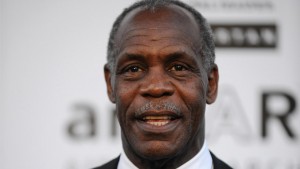 AMERICAN actor and civil rights activist Danny Glover urged Jamaicans who attended a breakfast forum held in his honour yesterday not to forget their history or their ancestors as they move forward in tackling the issue of reparatory justice.
AMERICAN actor and civil rights activist Danny Glover urged Jamaicans who attended a breakfast forum held in his honour yesterday not to forget their history or their ancestors as they move forward in tackling the issue of reparatory justice.
“When we talk about reparations we are taking in our ancestors’ stories… to understand what our ancestors had to do to get us to this point; it only encourages us and reinforces what we have to do to take the next step,” Glover told the forum at the Jamaica Pegasus Hotel in Kingston.
He added that people need to understand that “we are the embodiment of what they wanted, what they dreamed, what they died for, and what they cried for”.
“Let’s move this moment, let’s protect this moment as it redefines us, redefines our passion, redefines our determination, and so redefines our will to make the community a transformative community; that’s necessary and that we yearn for, that our fore parents have yearned for, that those who live here now yearn for, and those in the future should yearn for,” Glover said.
The actor, who was the main speaker at the forum hosted by the National Commission on Reparations, also spoke about the involvement of young people in the reparatory process and how they deal with self-identity.
“For young people, and I’m just theorising, the idea of reparation is a step that comes after other steps, and a clear understanding of history and the moment that we are at in this particular point in this history we make,” Glover stated.
He joked about his own personal struggle with his identity while growing up in the 1950s, as there was a time he as well as his friends tried to straighten their hair to fit in, but later, as times changed, they discovered a new kind of paradigm in which they envisioned and accepted themselves.
He said there are certain questions he asks himself when he thinks about identity in the south, and that a big part of identity is how people embrace their past, who they are, and how they embrace their history.
“…How we look is connected to the deepest feelings of who we are. And that’s the question I think is important, some people do feel like they are just as African or may celebrate this sense of Africa even though they may bleach or straighten their hair,” said Glover in response to questions about youth neglecting to embrace their black identity.
Glover said he remembers a time when everyone around him was changing their name and everything else, and he decided that his name was fine the way it was.
“So the question becomes for us always what we do. If I go to talk to other actors, I gotta say ‘check out what they doing in Jamaica’, you gotta check out what they’re doing in Copenhagen in terms of repatriation. We gotta figure out what they are doing to transform the conversation into a movement, and transform that movement into action; those are the things we want to bring back,” he said.
The actor encouraged the National Commission on Reparations to keep up the great work, as it had inspired him as well as his colleagues.
